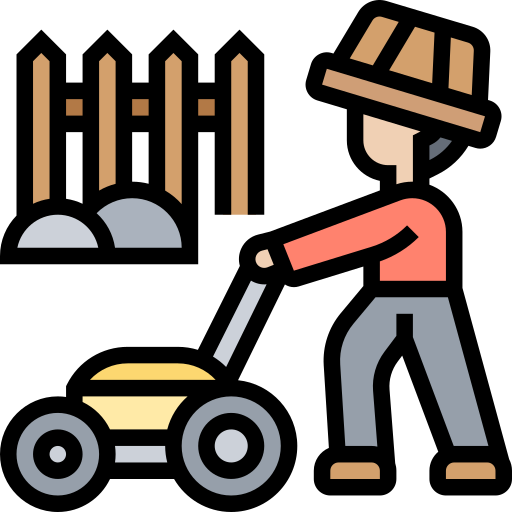
This logo isn't an ad or affiliate link. It's an organization that shares in our mission, and empowered the authors to share their insights in Byte form.
Rumie vets Bytes for compliance with our
Standards.
The organization is responsible for the completeness and reliability of the content.
Learn more
about how Rumie works with partners.
Your love for plants led you to explore horticulture as a career option, and then you learned how to become a horticulturist.
But did you know that a horticulture degree can lead to careers in designing, construction, plant breeding, crop production, farming, education, marketing, business and many more career pathways?
So how do you choose from such a large scope of work options?

Identifying jobs in your area of interest can be a good starting point to make a choice.
Let's take a closer look at some common career pathways that open up with a horticulture degree.
Career Pathway #1: Education, Research, and Community Outreach

If you're passionate about preserving native habitats, sharing your knowledge of local plants and vegetation with your communities, educating the next generation, and finding ways to improve methods of food production, then here are some careers for you.
 Horticulture Educator
Horticulture Educator
As a horticulture educator, you'll teach classes on horticulture, agriculture sciences, and garden management.
Job responsibilities may also include:
Caring for plants required for activities
Designing curriculums and interactive projects
Typical employers:
Universities and colleges
Local government agencies and community centers
Horticultural Researcher
Agronomist
You can look for jobs as a research associate/scientist if you're interested in:
Improving methods of food production
Assessing the impact of pesticides
Finding more green ways of producing crops
Creating more pest and disease-resistant varieties of plants
Agronomists are also called crop scientists, and they specialize in crop cultivation.
Job responsibilities may also include:
Performing tests
Assessing technologies that help grow plants
Teaching University classes
Typical employers:
Agricultural universities and colleges
Private firms
 Extension Agent
Extension Agent
As an extension agent, you'll engage with local communities to help them better understand and preserve their native habitats.
This highly engaging and satisfying job may also require extensive outdoor work and travelling long distances.
Job responsibilities may also include:
Educating communities about local horticulture
Organizing and managing research-based programs for improving local agriculture and farming practices that bring a positive impact to the local environment
Typical employers:
Government agencies
Check out this job description to learn more about this profile.
Career Pathway #2: Art and Design
 Photo by Leohoho on Unsplash
Photo by Leohoho on UnsplashIf you enjoy indoor and outdoor designing and are good at expressing and illustrating your ideas, then here are some careers to explore with a horticulture degree.
Some jobs may not require a degree but a certification may be required by employers.
Floral Designer
Ornamental Horticulturist
If you like to be creative with flowers and plants, like creating floral designs and growing plants for ornamental and decorative purposes, then these jobs may be a good fit for you.
Job responsibilities may also include:
Customer service and sales
Caring for plants and floral products
Typical employers:
Wholesale and retail floral businesses
Greenhouses and nurseries
Opportunities are also available for freelancing and starting your own business
Landscape Designer
Interiorscape Designer
As a landscape designer,you'll apply your knowledge of soil and natural environment to choose the best-suited plants for the landscape design.
As an interiorscape designer, you'll create beautiful interior spaces with plants.
Job responsibilities may also include:
Interacting with clients to understand their needs.
Collaborating and negotiating with contractors, vendors, and suppliers.
Typical employers:
Landscape and property development businesses.
Large corporates for maintaining their indoor and outdoor spaces.

Profile #1: Find a Good Fit for Rhea
Rhea is in her final year of horticulture studies. She enjoys gardening and has successfully created a beautiful small garden on her balcony. In her free time, she volunteers at an elementary school to help raise awareness about the local flora and teach gardening skills.
Quiz
Which jobs would be a good fit for Rhea? Check all that apply:
Rhea is creative and has a passion for teaching others about local flora. She would be a good fit for jobs in education and community outreach, or where creative skills are required.
Career Pathway #3: Caring for Gardens, Nurseries, Landscapes, and Green Spaces
 Photo by MIO ITO on Unsplash
Photo by MIO ITO on UnsplashIf you enjoy working in large outdoor spaces like, gardens, parks, or sports fields, here are some career options that open up with a degree in horticulture.

Horticulturist
Garden Assistant
Nursery Worker
These jobs will require you to provide care for plants and flowers and plant bulbs, help transplant plants, examine soil quality, and inspect plants for diseases.
Job responsibilities may also include:
Caring for and watering plants regularly
Transporting purchased plants
Maintaining plant care and sales records
Answering customer questions about types of plants, plant care techniques, etc.
Caring for equipment and computer systems that monitor plant care
Typical employers:
Public and private gardens and parks
Private residential owners
Commercial outdoor nurseries and greenhouses
Seasonal garden centers

Greenskeeper
As a greenskeeper, you'll be responsible for landscape maintenance of outdoor green spaces.
This labor-intensive job requires physical fitness for long hours of outdoor work.
Job responsibilities may also include:
Handling small and large technical equipment
Application of fertilizers and pesticides
Typical employers:
Golf and country clubs
Tourist resorts

Lawn Care Specialist
As a lawn care specialist, you'll provide regular lawn maintenance services for residential or commercial properties to help maintain healthy lawn spaces.
Job responsibilities may also include:
Trimming hedges
Safely using chemical
Typical employers:
Private businesses providing lawn care services to residential and commercial properties
Career Pathway # 4: Serving and Supporting People
 Photo by Elaine Casap on Unsplash
Photo by Elaine Casap on UnsplashIf you're interested in using your horticultural knowledge for helping to grow safe and nutritious food or helping in the recovery process for sick people, then you can explore these career options.

Horticulture Inspector
Produce Inspector
As a horticulture inspector, you'll examine plants, seeds, and plant facilities to ensure they meet the health and safety regulations.
As a produce inspector, you'll examine fresh produce during the growth and harvest process, and grade them according to USDA guidelines.
Job responsibilities may also include:
Label inspected products and issue recalls for products that don't meet safety standards
Typical employers:
Government agencies
Private organizations also offer similar roles to ensure their facilities and products comply with regulations

Horticultural Therapist
As a horticultural therapist, you'll use your knowledge of plants to help patients with physical and mental health issues through plant-based and gardening activities.
Job responsibilities may include:
Designing and maintaining wellness gardens
Planning gardening therapies and exercise in consultation with medical professionals
Teach gardening classes
Typical employers:
Hospitals, rehabilitation centres

Profile #2: Find a Good Fit for Ron
Ron has recently completed his Bachelor’s in horticulture. He has also worked on a local farm during his vacations to gain work experience. He's comfortable using heavy garden and lawn equipment and enjoys outdoor work.
Quiz
Which positions would be a good fit for Ron? Check all that apply:
Ron enjoys outdoor work. Assistant greenskeeper and public garden horticulturist roles involve more outdoor work. Ron also has experience using heavy equipment.
Career Pathway #5: Writing
 Photo by Nick Morrison on Unsplash
Photo by Nick Morrison on UnsplashFinally, if you enjoy expressing yourself through words and sharing your knowledge about plants and gardening techniques there are many opportunities to write and publish your work in print, television, or digital media. 
Horticulture Writer
As a subject matter expert in your field, you'll write about and publish your work on plants, gardening, and agricultural techniques. You can also collaborate with other horticulture experts in research and education to write about the latest breakthroughs and innovations.
Job responsibilities may also include:
Creating your own illustrations
Adding your own images
Typical employers:
Horticulture related publications
Self-employment opportunities (personal blog sites)
Private firms and government institutions also hire horticulture content writers for creating promotional content for public engagement
Take Action

Now that you’ve seen the wide scope of green careers, here are some next steps to help you narrow down your career choice.
This Byte has been authored by
Monisha Lal
Volunteer Learning Developer


